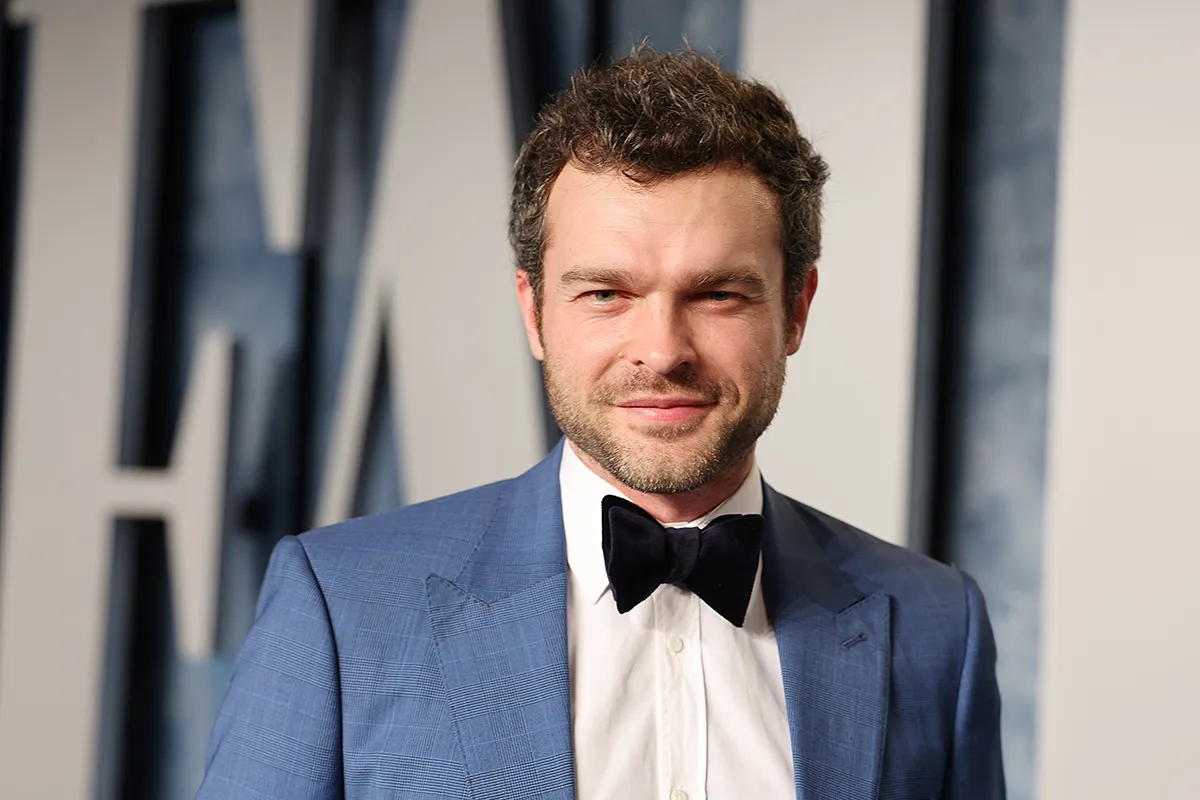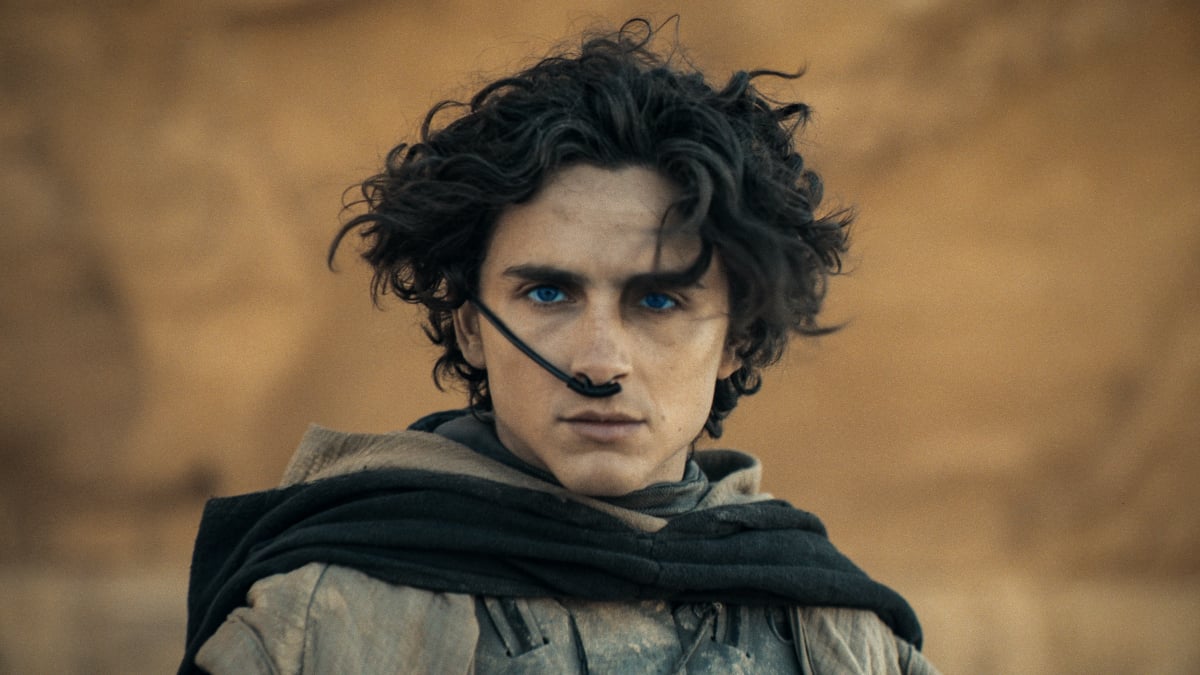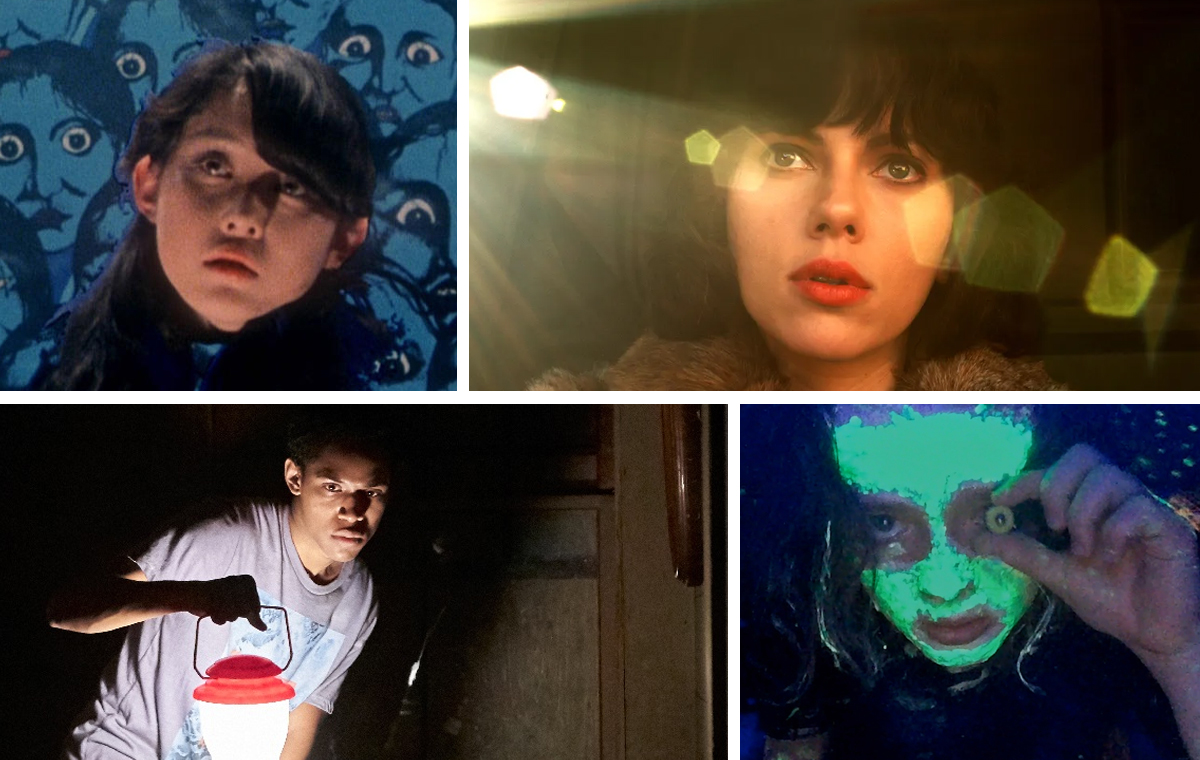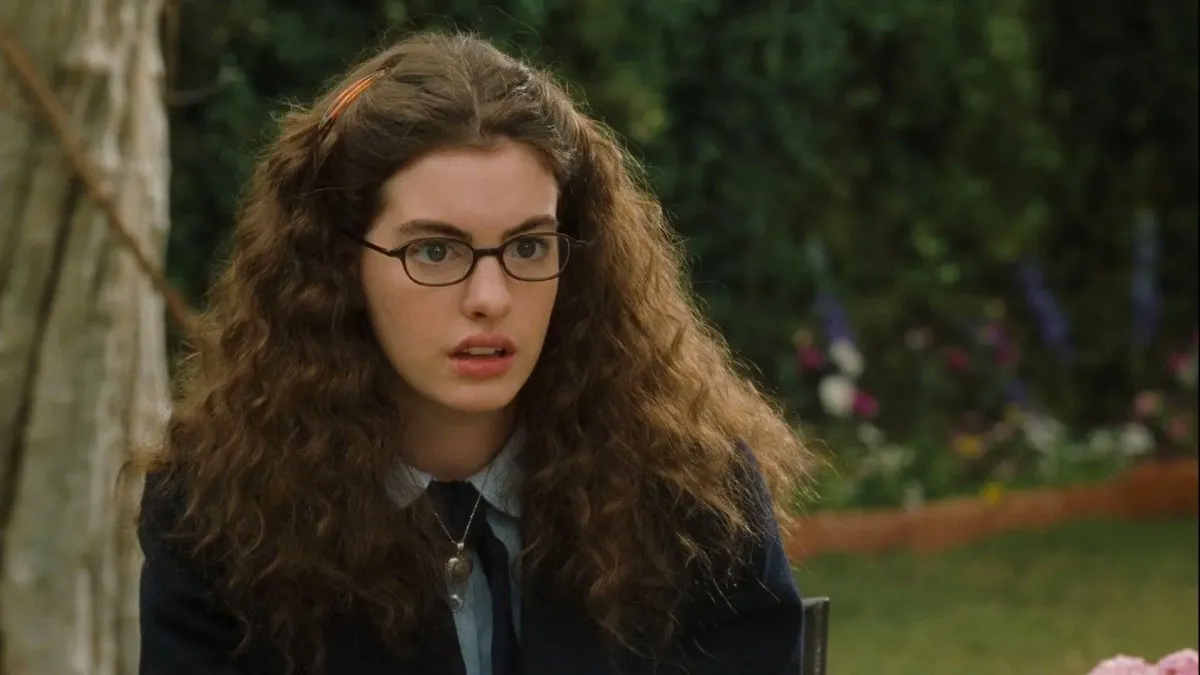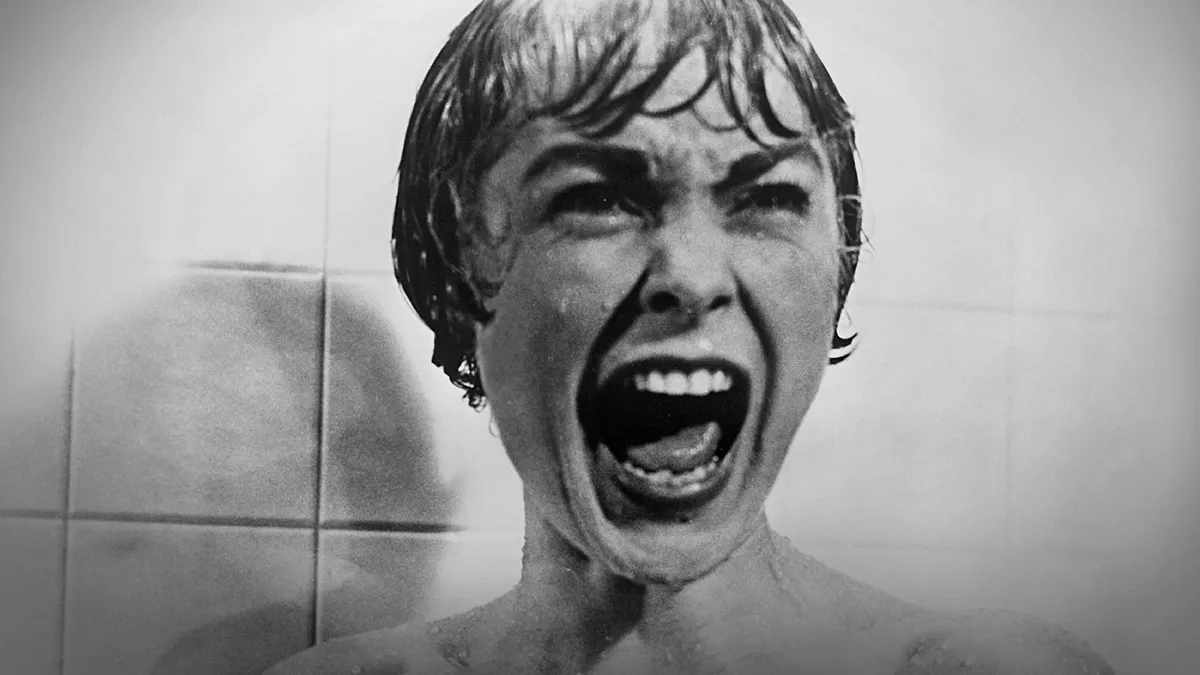There are actors in every generation that stand out for fans. To me, one of the best of my generation is Alden Ehrenreich. Making his start in films like Beautiful Creatures and the Coen brothers film Hail, Caesar!, Ehrenreich is no stranger to genre and working in the industry. Now he is making his directorial debut with the short film Shadow Brother Sunday, which premiered at the Tribeca Film Festival this year. Shot on film, the short explores a musician struggling to make it and using his family as a means of helping himself out. Shadow Brother Sunday is a stunning example of Alden Ehrenreich’s ability as an actor as well as his brilliance behind the lens.
It’s not easy to be an actor who is constantly changing the idea fans have of his career. Quite frankly, if you told me the guy from Beautiful Creatures was going to end up being one of the funniest elements of a movie called Cocaine Bear, I wouldn’t believe you. Luckily, Ehrenreich is constantly evolving, making him one of the more fascinating actors working today. If you go through his filmography, it’s ever-changing and you never know quite what to expect. From his franchise work as Han Solo in Solo: A Star Wars Story to roles in indies like Somewhere, he’s always keeping us on our toes.
Getting to talk with Alden Ehrenreich was something that truly meant the world to me as someone who has watched a lot of his work and appreciates his approach to character and filmmaking as a whole. We talked about his short film and his upcoming work in Oppenheimer as well as his past roles, including Han Solo and playing John in Brave New World. It is one of my favorite conversations I’ve had with someone to this day.
Film and Ehrenreich’s career
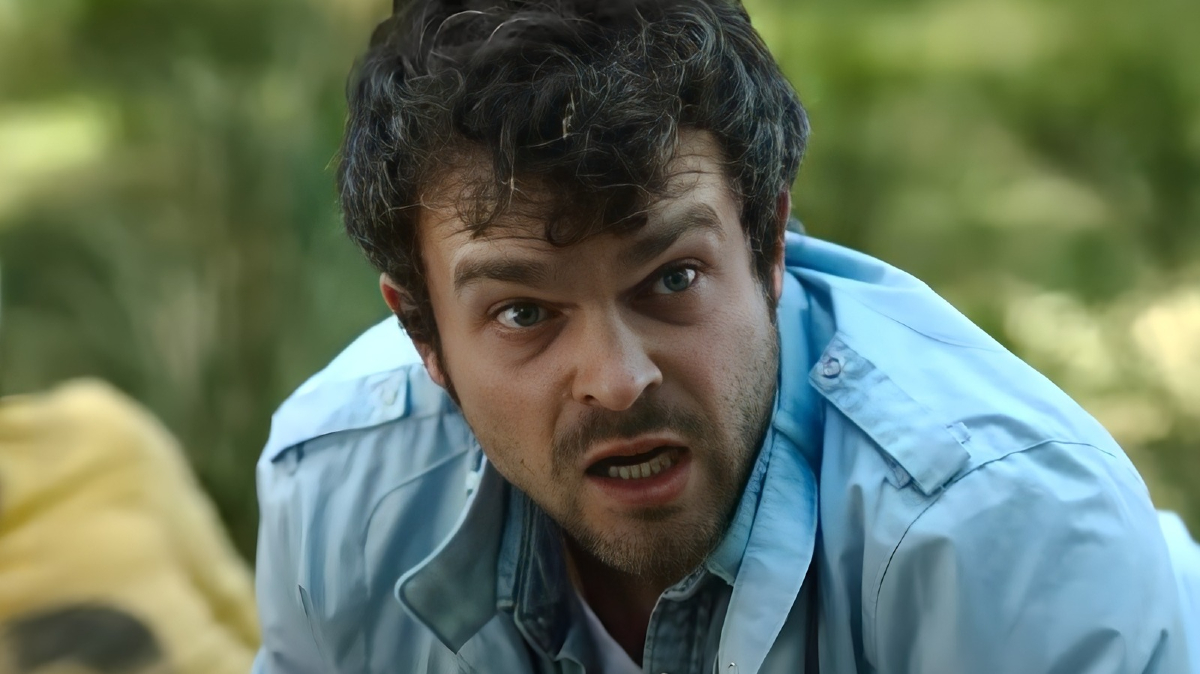
Ehrenreich’s photography skills are something that many fans, myself included, picked up on through his newly minted Instagram account, where he posts his photography for followers to enjoy. So when I was lucky enough to sit down with him at Tribeca for his new movie, I asked how his love for photography and specifically film photography helped him craft his vision for Shadow Brother Sunday.
“There’s a few ways,” Ehrenreich said. “When I was like 22 or 23, I started shooting on film primarily because I was spending time with family and I was taking pictures of family. And at first, I was shooting digitally and when I got the film photos back, the way that the images of my parents registered in my body and my emotions looking at a film photo of them was the way that it feels to be with them. That wasn’t the case with the digital photography. There’s an intangible kind of magic to film that I was feeling and it made me feel like, ‘well, this is gonna capture it.’ I don’t think it’s great for everything necessarily, but I think there’s a heart to it, there’s a soul to it that I really care about.”
Ehrenreich shot Shadow Brother Sunday on film, but he still wouldn’t consider himself an expert. “I have not studied it the way that I’ve studied other crafts. I’m not a serious photographer,” he explained. “But I did it because I wanted to start training my eye toward what I found beautiful, how light played on things. So through that process, I got to know how actually to shoot [Shadow Brother Sunday], it just helps me develop and get a more sophisticated eye so that by the time that I was directing something, I felt more confident in my aesthetic kind of visual choices.”
This led to me asking Ehrenreich how his own film background helped him with directing other actors. A lot of performers go into directing, it’s not uncommon, and neither is directing yourself. But it does come with a unique challenge of doing your own thing while still having to direct the actors around you. For Ehrenreich, it all comes back to the way things are shot.
“I think that when you’re shooting on film on a project, it changes the quality of attention of every single person on that set,” he said. “When you’re shooting digital, you could do 6,000 takes and then it’s not gonna make any difference. You’re shooting on film, and again, I don’t think every movie should be shot on film. I think digital got its own aesthetic. But when you’re shooting on film, I think the advantage is when you start rolling, the whole room changes and everybody’s paying attention and everybody knows that every second is meaningful and is expensive.” Ehrenreich found a connection between shooting on film and how he wants to approach his career. “There’s a weird corollary with that to what I would like—and this movie is just a very small beginning thread of this—to work with as an artist, as a filmmaker, which is that I think this movie in some ways is about paying attention,” he said. “What [my character] fails to do is pay attention to his brother or see his brother. In a weird way, the way that film makes you pay attention to every moment that’s happening in front of it is not unrelated to the way that paying attention to the moments that happen in life, when you’re really aware of how fleeting and precious they can be, brings a special quality to the way you live.”
All this talk of shooting on film did bring me to his work in the upcoming Christopher Nolan film Oppenheimer. Based on the story of J. Robert Oppenheimer’s creation of the atomic bomb, the film is something that Nolan—who famously shoots on film—has been working toward for years. Ehrenreich’s short was greenlit “basically the day I got back” from shooting Oppenheimer, he said. “Having spent time with Nolan right before was just a very inspirational thing,” Ehrenreich said, noting that the experience made it “clear that it needed to be shot on film, which was something I always felt, but being with him, it made it all the more important.” It also seems to have energized Ehrenreich. “Just being around a filmmaker master at that level, any master craftsman at that level is really inspirational,” he said. “It’s really inspirational to see how they run their set. It’s really inspirational to kind of get to walk into their process. Even if their process is really different from you. It’s really exciting. So, I came off of that experience very inspired to do this.”
Ehrenreich on his past work

Prior to sitting down with Ehrenreich, I was worried about bringing up Han Solo. Not because I didn’t think he would want to talk about it, but because I didn’t want to come across as someone who only cared about his biggest role. Still, I loved what he did with Han as a character and when I brought up the fact that Ehrenreich understood Han Solo in a way that I think a lot of men (especially male Star Wars fans) misinterpret, he asked me to explain. So I told him how I was worried going into Solo that it would make Han into a man who is good at talking to women, and this suave guy that Star Wars fans (particularly men) seemed to constantly misunderstand.
Han Solo is not a ladies’ man. He can barely speak to women; he’s a hermit who would rather not deal with any human being at all if it were up to him. But the minute I saw Ehrenreich’s Han, who had his charm but was also rooted in his own insecurities, I knew that this was a movie for me. “That’s a really perceptive thing,” Ehrenreich said. “It’s interesting because over time when something becomes iconic It sort of becomes the cartoons that get drawn of it. And when you go back and watch who Han is and I think who George Lucas wrote him to be, and I think also the kinda fusion of who Harrison Ford is and the role, it is someone who is very anxious. I don’t know that I’ve ever talked about this, but that’s a very perceptive angle on it.”
While we talked a bit more about the evolution of characters, especially Han Solo and—on the subject of Harrison Ford—Indiana Jones, I asked Ehrenreich how he connects with characters in his own way to understand them on a deeper level than what we, as the audience, might see on the surface. “I mean, I think that the thing that is the most important to me is treating a character like someone who has a life that you’re responsible for,” he said, “and taking that really seriously. And no matter what it is, giving yourself as best you can to their life and to what they care about and what matters to them and their fears and their insecurities and their hopes and their passion. It’s in that story.”
We talked a bit about acting techniques and styles. Ehrenreich studied Stanislavski, whose work has often evolved into other methods—like the Meisner method, which I studied in school. This led to Ehrenreich getting into the new generation of actors and how they are adapting acting techniques within their work in film and television.
“What matters to me and what I feel really strongly about, what I sometimes worry about,” he explained, “is a younger generation of actors—or actors in a landscape where there’s so many ways to get attention and get famous and spill your guts out about your personal life or do something silly that gets people to care about you—that it’s really important to me that people still invest themselves in their roles in such a way that we see a human being. When we see a film or a TV show, we see a human being. When you see somebody who’s really bringing that character to life, it lets you see what human beings everywhere are sort of going through. And when you’re just kind of looking at something and putting it in a box or checking it off a list in not very attentive, not very deep ways of seeing things, we miss the human part of the matter.”
Ehrenreich went on to discuss how movies and characters can help us reflect on our own lives when the characters feel real and human to us. “You look at a movie and you see somebody play a character really well, and at the other end of that you’re more aware of what people sort of go through,” he said. “When you go to the coffee shop after the movie and see somebody sitting in the corner who looks like they’re having a hard time, I think you’re more likely to see them and care. To me, acting craft is not just for the sake of acting craft. Acting craft is a vehicle to help people understand and see what it sort of is to be a human. And that’s acting at its best.”
________________________________________
Hearing Alden Ehrenreich talk about his craft and his work makes you understand exactly why his characters are so memorable. When I watched Brave New World and saw John listening to “Fake Plastic Trees” by Radiohead at the end of the pilot, I knew that this man was having an experience to that song in the same way I did. That’s because Ehrenreich puts a level of care into his work to help us, as the audience, connect with it.
I’ve been a fan of his for a long while and seeing him come into his own as a director while still shocking audiences with his skill (especially with how funny people found him in Cocaine Bear), I think that he’s just someone who deserves all his flowers and more. Shadow Brother Sunday is currently available to stream using the Tribeca at Home app with a shorts pass, and while it is only a short film, it highlights Ehrenreich’s ability and is worth the watch.
(featured image: Cindy Ord / VF23 / Getty Images for Vanity Fair)



